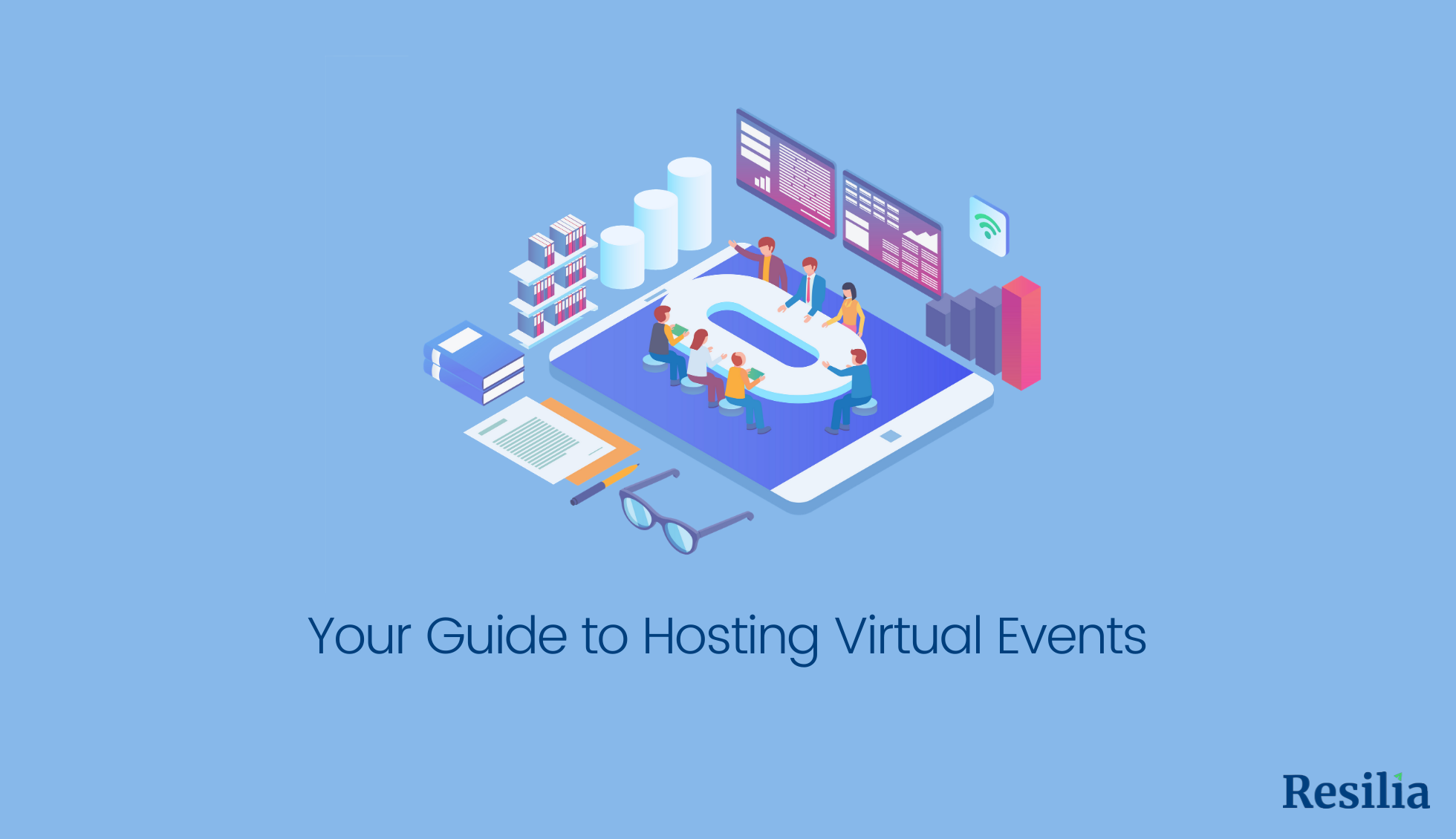Your Guide to Hosting Virtual Events
Over the past few months, our society has seen an influx of events get postponed and even canceled as a result of the pandemic. Many event hosts are still unsure when it will be safe for them to reschedule their events. One industry that is being hit particularly hard by these restrictions is nonprofits. Events are one of the key fundraising drivers for many nonprofit organizations, and for the sake of their missions, they must start planning alternative ways to host their events. Rather than postponing and hoping for definite answers, nonprofits should turn their focus to virtual events.
A virtual event is an internet-based event that allows attendees to connect remotely from wherever they are. A host will be able to present from a location of their choosing to attendees who will be able to view the event from the comfort of their own home. These types of events will allow organizations to stay connected with potential donors even when face-to-face gatherings are not possible.
There are many advantages to virtual events compared to in-person events that most organizations are used to hosting. One of the largest benefits of switching to virtual events is the number of attendees you can hold at once. When organizations hold in-person events, the number of attendees they can speak to is determined by where they decided to host the event. If your event location is a ballroom that holds 1,500 people, then you’re automatically limited to 1,500 attendees. With virtual events, that obstacle no longer exists! Livestream technology continues to improve, and many are capable of hosting hundreds of thousands of users at once.
Here’s a list of virtual event platforms you may want to consider:
Hopin - More than just your typical webinar hosting platform, Hopin is the first all-in-one live online events platform where attendees can learn, interact, and connect with people from anywhere in the world. Whereas webinars tend to be one-sided with listeners passively attending. Hopin ups the level of engagement, networking and interaction with a host of extra facilities not found in other webinar hosting platforms.
Crowdcast - Crowdcast is another great platform for hosting virtual events. With Crowdcast, you’re able to conduct interactive Q&A’s, present polls to create real conversations, track your performance with great analytics, broadcast to platforms like Facebook Live, Periscope and YouTube Live, and more.
Facebook Live - If your organization has a large following on Facebook, this may be one of the easiest ways to ensure your supporters know about the event. When your organization starts an event via Facebook live, your followers will receive a notification. Facebook also allows registered nonprofits, or charities, to collect donations during their live streams.
LinkedIn - LinkedIn is another company that has recently given organizations the ability to host live events. In order to apply and gain access to LinkedIn live, an organization must have at least 1,000 followers. If your organization meets that threshold, it is definitely an option to consider. Why? Because you will already have a following on that platform, which makes it easier to acquire attendees.
Zoom - Zoom is a popular communication tool that nonprofits can access. While there is a free offering, there are limitations that would make it difficult to host large-scale events. However, users can purchase ZoomPro and get the Large Meeting add-on to support larger-scale events.
YouTube - Most people are familiar with YouTube and its ability to showcase videos to a large audience, but they, too, have a Live Stream offering. Much like Facebook and Linkedin, if your organization has a large following on YouTube, it can be a great place to host a live stream event and reach your existing subscribers as well as land new ones.
Twitch - Twitch is a live-streaming platform that has grown exponentially through content creators streaming video games. While the platform may have risen to fame through video games, it has been used for much more. Gamers, music artists, companies, and many others have all used the platform to share their content. Some nonprofits have even partnered with content creators with large followings to help raise money for their missions.
After your event is over, be sure to share its video or recording content with those who could not attend live. Sharing this content will help build your followers over time.
Virtual events will continue to become more popular as society progresses. At Resilia, we encourage you to take advantage of its popularity and consider hosting a virtual event sooner rather than later.
Sign up for our weekly newsletter here.
Sign Up for the Resilia Newsletter
Let Resilia support your success! Sign up today and start receiving valuable resources, insightful content, and important news and updates.
We don't spam, we just send resources to your inbox (we hate spam, too)

